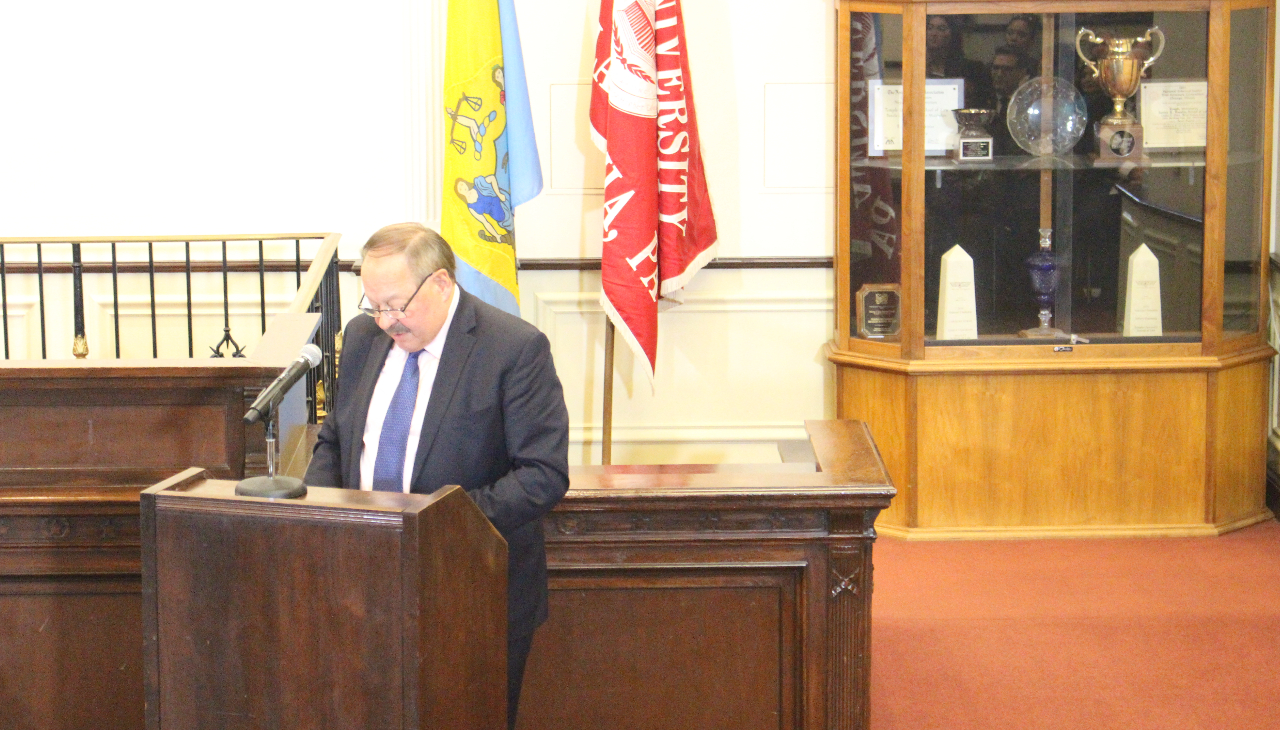
Fifty years later, Nelson Díaz has seen Latino representation in law come a long way
However, there is still so much further to go within the legal profession.
There are many words that can be used to describe The Honorable Judge Nelson Díaz.
However, if there is one that could even remotely encapsulate the magnitude of his many accomplishments, it would be trailblazer.
Díaz was notably the first Latino to pass the Pennsylvania bar exam before going on to become the first Latino judge in the state’s history.
Last year marked the 50th anniversary of Díaz’s achievement, and 50 years later, Diaz is able to reflect on “the historic growth of Latinos in key areas of the law.”
Today, Philadelphia has a Latino in four of the top law enforcement and judiciary positions — Juan Sánchez as Chief Judge of the US District Court of Eastern Pennsylvania, Jacqueline Romero as US Attorney for the Eastern District of Pennsylvania, Judge L. Felipe Restrepo as part of the US Court of Appeals for the Third Circuit, and Diana Cortes as City Solicitor.
To Díaz, this is a reflection of the contributions that Latinos have and continue to make within the legal profession.
Díaz’s journey into law school began in 1969 at the Temple University Beasley School of Law. It’s a school that Diaz has left an indelible mark on — from his three years in law school to becoming the first Puerto Rican to graduate from the school, and the several decades since.
His impact within the Temple Law School community has been so profound that in 2021, the school introduced the Honorable Nelson A. Diaz Professorship in Law — the first title of its kind to be named after a Latino.
“This is so important for all of us and for Temple Law School, [which] I love dearly, because this is the place that I transformed into a school that had diversity,” said Diaz during the inaugural celebration of the Honorable Nelson A. Díaz Professorship at Temple’s Beasley School of Law on Feb. 27.
For decades, Díaz has been committed to helping Temple Law increase its diversity regarding both its students and professors.
This, in turn, would create a pipeline of diverse legal professionals across the entire legal sector.
“I have always advocated for marginalized and underrepresented groups,” said Díaz. “including African Americans, Afro-Latinos, other communities of color, Soviet Jews, women, Latinos, and obviously, the Puerto Rican diaspora.”
Díaz is the co-founder of BLSA (Black Law Students Association), LALSA (Latin American Law Students Association), the Hispanic Bar Association of Pennsylvania, the Latino-Jewish Coalition, and various other national and local organizations.
Another goal for Díaz is to create a Latino chair, an endeavor that started when Díaz discovered that there were none across the entire Commonwealth of Pennsylvania.
Getting to the point he is in today took several trials and tribulations. Díaz thanks his mentors for helping him along the way.
Born in Harlem, New York, to parents from Puerto Rico — and with African, Taíno and European ancestry — Díaz has often encountered situations where he “wasn’t… enough.”
This was especially true when he arrived to Philadelphia.
“If I hadn’t had the help of a mentor like Howard Gittis and my relationship with the Jewish community, I would not have survived in this city because nobody would hire me,” he said.
From then on, Díaz fought for everything he has attained, and has fought just as diligently for others to achieve their goals.
RELATED CONTENT
“All I wanted to do was to open the case for us,” said Díaz. “Opening the case for others makes us richer and better.”
Díaz remembers the days when the Hispanic Bar consisted of himself, and a mirror. Today, the organization is hundreds strong, and growing.
Sánchez, Restrepo, Cortes, and Romero represent just some individuals of Latino descent who have made their ways into prominent positions in the legal industry.
Given the prominence of their roles, they are key representations of the role Latinos can play in the industry.
“I may have been the first, but I never wanted to be the last,” Díaz said.
While it warms his heart to see that growth, there is much more growth to be seen.
In an interview with AL DÍA, he particularly highlighted the private sector.
“We still have a long way to go in the city to be accepted in the private sector,” he noted.
Nonetheless, being the only city in the nation with four of its top five legal positions being helmed by Latinos is a proud achievement.
“There’s a lot of talent out here,” said Díaz.
If there is one thing he has learned from his decades of advocating for racial justice, equality, and representation in the legal field, it’s that no win comes without strife.
For that diversity to be reflected in the private sector, as much as it is in the public sector, it will take a lot of work, advocacy, and determination.
“We’ve got to struggle,” he said.











LEAVE A COMMENT: